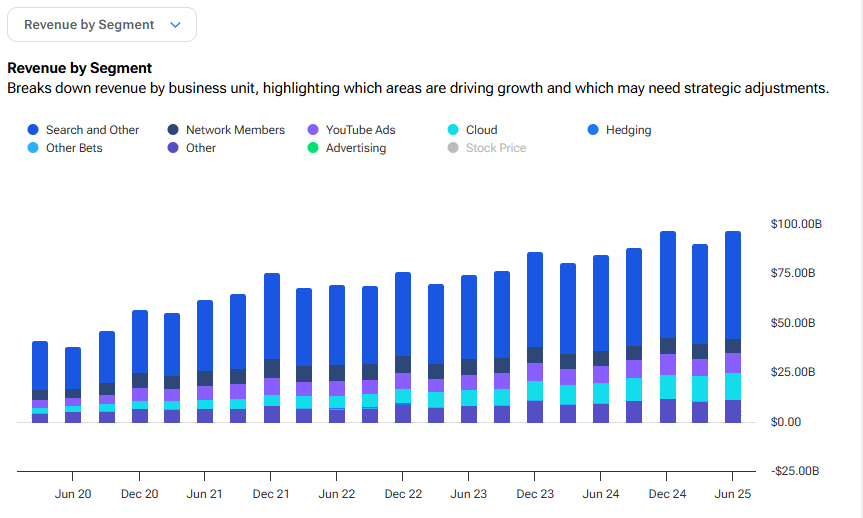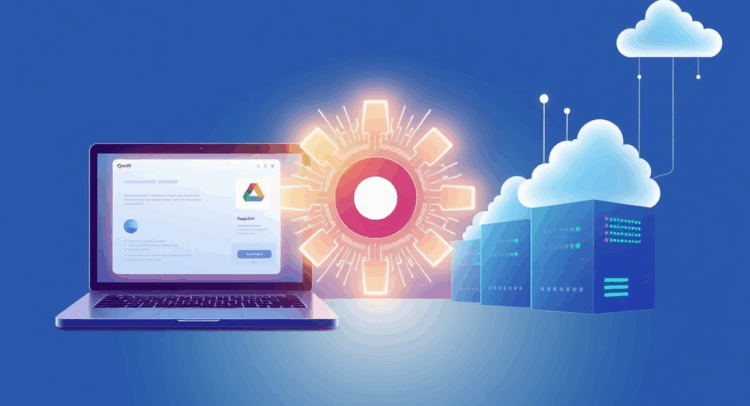OpenAI’s (PC:OPAIQ) new browser, Google’s (GOOGL) (GOOG) latest quantum milestone, and a possible cloud deal with Anthropic (PC:ANTPQ) show how fast the AI race is shifting, with each move pointing to a broader trend. The companies that once competed in software are now fighting across the full stack of AI, from user interfaces to hardware and cloud computing.
Elevate Your Investing Strategy:
- Take advantage of TipRanks Premium at 50% off! Unlock powerful investing tools, advanced data, and expert analyst insights to help you invest with confidence.
OpenAI Challenges Google’s Core
On Tuesday, OpenAI launched its new web browser, ChatGPT Atlas. It blends web search with ChatGPT’s AI engine and lets users talk to the browser instead of typing queries. The app can even browse pages, read text, and summarize results on its own through a feature called agent mode.
This move places OpenAI in direct competition with Alphabet. Google’s Chrome browser and search business still control most of the global market, but Atlas aims to change how people find and use online information. OpenAI says Atlas will arrive first on Apple (AAPL) laptops and later on Microsoft’s Windows (MSFT), Apple’s iOS, and Google’s Android systems.

Currently, OpenAI has over 700 million users, but most use the free version. As a result, the company continues to seek profit. Turning ChatGPT into a search and browsing tool may open a path to ad revenue and higher engagement. However, analysts note that competing with Chrome’s base of about 3 billion users will be a long-term challenge.
Google Advances in Quantum Computing
At the same time, Alphabet’s Google Quantum AI team announced a new physics experiment that it says shows measurable progress toward practical quantum computing. The company used its 65-qubit Willow processor to run a complex simulation 13,000 times faster than the Frontier supercomputer, which is currently the fastest classical system.
According to Google, this result demonstrates that its Quantum Echoes algorithm can produce data that classical computers cannot match. It also links the result to a real-world use case: extending the reach of nuclear magnetic resonance spectroscopy, a key method in chemistry and materials science.
Google views this as an early step in its roadmap to build usable quantum systems. The result also marks the first major success on the software side of that plan, after earlier milestones in quantum supremacy and error correction. For investors, the update highlights Google’s push to develop both AI software and next-generation computing hardware that could support future scientific and industrial applications.
Anthropic and Google Cloud Expand Ties
Meanwhile, AI startup Anthropic is in talks with Alphabet’s Google Cloud to expand its existing partnership. Bloomberg reported that the new deal could be worth tens of billions of dollars. Google has already invested about $3 billion in Anthropic over the past two years, with $2 billion in 2023 and another $1 billion earlier this year.
If completed, the deal would strengthen Google Cloud’s position as a top provider of AI infrastructure. Anthropic would gain access to more computing power to train and run large language models. The agreement would also reinforce the link between Google’s cloud and the companies building key AI models, similar to Microsoft’s ties with OpenAI and Amazon’s (AMZN) ties with Meta (META).
One Race, Many Fronts
Taken together, these three developments show how the AI market is splitting into layers. OpenAI is targeting the user side with tools that could reshape search and online ads. Google is strengthening its base with hardware and algorithms that promise new kinds of computing. Anthropic, meanwhile, is linking the two through its cloud partnerships.
Anthropic’s role connects the two ends of the AI market. OpenAI builds tools that people use, while Google builds the powerful systems that make those tools possible. Anthropic stands between them. It develops AI models like Claude but relies on cloud providers such as Google to run and train them. This setup helps Google sell more of its computing power while giving Anthropic the scale it needs to compete.
For investors, the week’s news reflects how Big Tech companies are positioning themselves to control different parts of the AI stack. While OpenAI seeks to capture how users interact with the web, Google is expanding its control of the infrastructure that powers the next generation of AI systems. The balance between these approaches may decide which company gains the strongest foothold in the years ahead.
Is Google a Good Stock to Buy?
Google still holds the backing of the Street’s analysts, with a Strong Buy consensus rating. The average GOOGL stock price target stands at $261.53, implying a 3.91% upside from the current price.

















